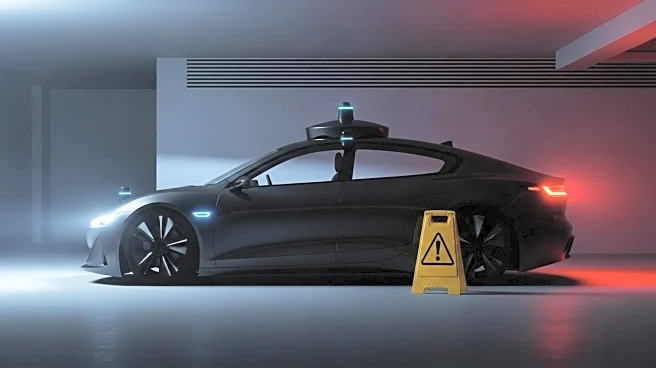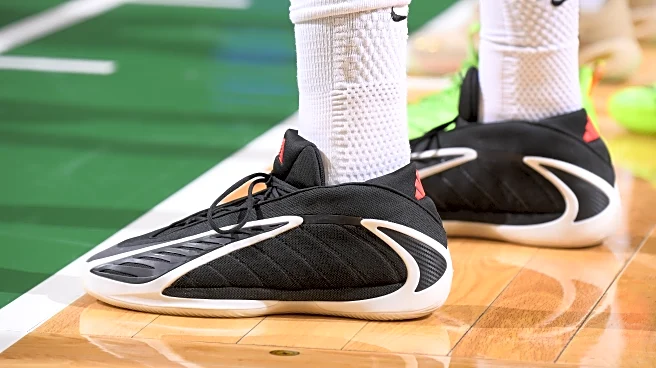What is the story about?
What's Happening?
Tesla's Full Self-Driving (FSD) technology, initially celebrated as a groundbreaking innovation, is now facing significant consumer skepticism. Recent surveys indicate that 35% of U.S. consumers are deterred from purchasing Tesla vehicles due to FSD, while only 14% find it appealing. This negative sentiment is driven by safety concerns, regulatory scrutiny, and demands for greater accountability. A study of FSD Beta users revealed troubling behaviors such as drivers sleeping at the wheel and erratic system responses, including phantom braking. These issues have led to calls for stricter regulations, with 66% of consumers advocating for Tesla to be held legally responsible for accidents involving its driver-assistance systems. Tesla's brand reputation has suffered, reflected in a net brand positivity score of -15, the lowest among major EV manufacturers.
Why It's Important?
The backlash against Tesla's FSD technology highlights broader implications for the automotive industry and consumer trust in autonomous vehicles. As safety concerns mount, regulatory bodies like the National Highway Traffic Safety Administration are intensifying investigations, which could lead to stricter regulations and impact Tesla's market position. The company's resistance to incorporating LiDAR technology, widely perceived as safer, has drawn criticism, potentially affecting its sales in regions like Europe where regulatory approval is pending. The negative consumer sentiment and legal challenges could deter investors and impact Tesla's long-term growth prospects, as the company struggles to maintain its competitive edge in the rapidly evolving self-driving car market.
What's Next?
Tesla is expected to release the FSD v14 update, promising significant improvements in model parameters. However, regulatory constraints may limit its deployment. The company faces ongoing legal battles over transparency and safety, with critics demanding more openness about crash data involving its systems. As Tesla navigates these challenges, it will need to address consumer trust issues and collaborate with regulators to ensure the safe deployment of its autonomous technology. The outcome of these efforts will be crucial in determining Tesla's future market position and brand reputation.
Beyond the Headlines
The controversy surrounding Tesla's FSD technology raises ethical questions about the balance between innovation and safety. The company's approach to autonomous driving, prioritizing camera-only systems over LiDAR, reflects broader industry debates on the best path forward for self-driving technology. As public trust in autonomous vehicles wavers, manufacturers may need to reassess their strategies to align with consumer expectations and regulatory demands. This situation underscores the importance of transparency and accountability in the tech industry, as companies navigate the complex landscape of innovation and public safety.
















